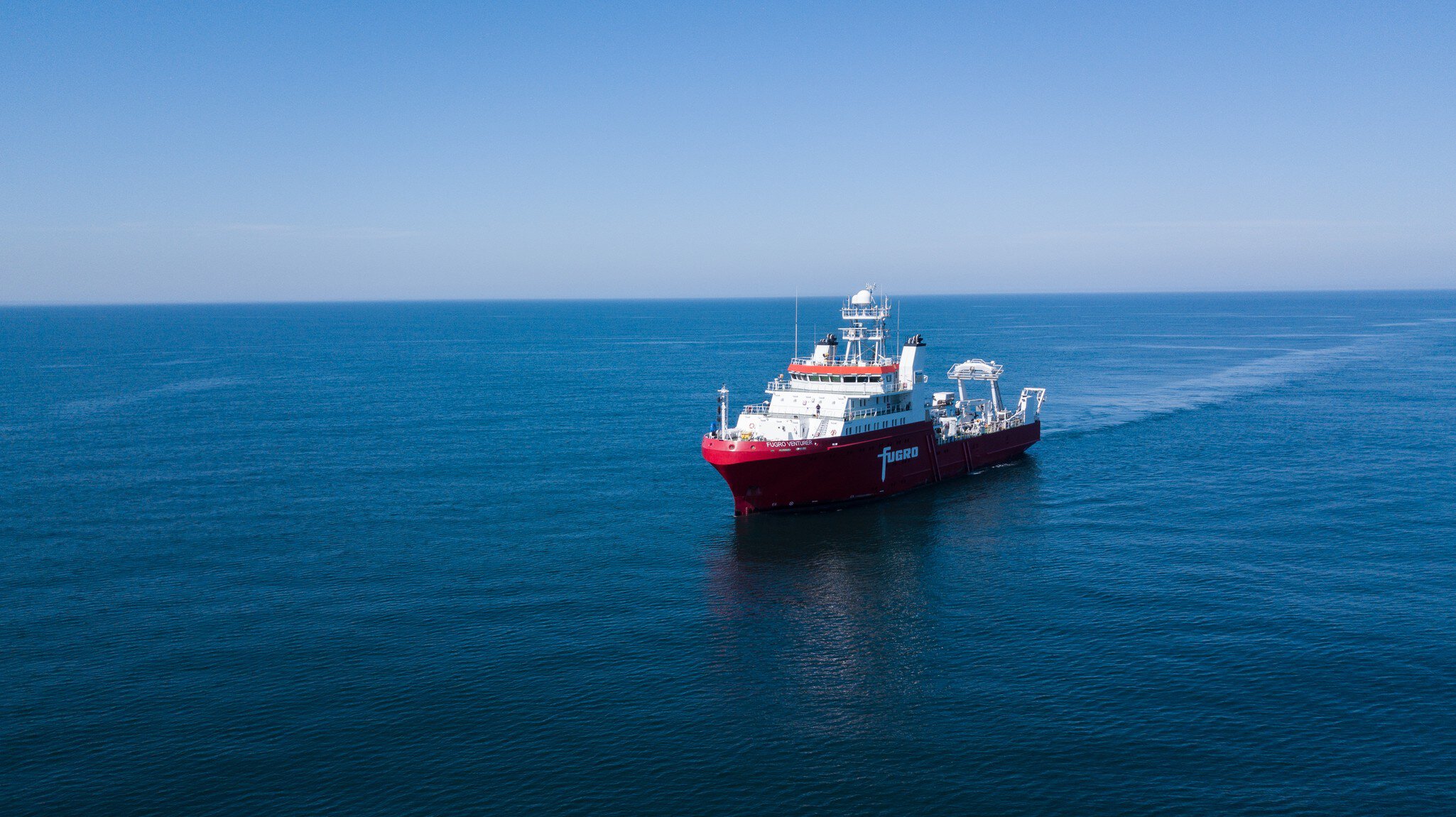Long read
Ocean climate action: a private sector perspective

Published
05 Dec 2023
Author
David Millar - Government Accounts Director
We live on a blue planet where our ocean and our climate are intrinsically connected. Yet key ocean-climate variables are still insufficiently observed, and the correlation between climate and biodiversity lacks proper monitoring and understanding. Closing these gaps is imperative, and the private sector can help.
Leaders from government, research, policy and business are gathered in Dubai right now, attending the 2023 United Nations Climate Change Conference. Fugro is proud to be part of this important event. Led by our CEO Mark Heine, our team has a long list of engagements all focused on one goal: increasing the availability of, and access to, ocean science data.
Why would a private sector company like Fugro take such a stand? Because it’s the right thing to do, both for the planet and for a sustainable ocean economy. This idea of private sector responsibility and opportunity was the topic of a TED-Talk style “Ocean Climate Spotlight” Mark gave today in the COP28 Ocean Decade + OceanX Pavilion. In keeping with the TED philosophy of “ideas worth sharing,” here’s a summary of what he had to say.
We need more ocean science
In the vast expanse of our planet, the ocean plays a pivotal role—covering over 70% of the Earth, producing half of the oxygen we breathe and serving as a vital source of food and livelihood for over 3 billion people. However, the health of our ocean is in decline, exacerbated by the looming challenges of a growing global population and the impacts of the climate crisis.
The UN predicts that the global population, currently at 7.6 billion, will soar to 9.8 billion by 2050. This demographic surge intensifies the pressure on the ocean as a crucial resource for food, energy, commerce, recreation and medicine. The urgency to better understand climate impacts and develop ocean-focused solutions has never been more apparent. But there’s a glaring gap in our knowledge—we need more data about our oceans. This can only be accomplished by a massive, coordinated effort that combines the expertise, resources and spirit of governments, academia, non-governmental organisations (NGOs) and the private sector.
The private sector’s untapped potential
While governments, academia and NGOs have made steady progress in this domain, the private sector holds a vast reservoir of valuable ocean data, acquired through activities such as offshore energy exploration, marine infrastructure development and scientific research. This data encompasses a wide spectrum of insights, including bathymetry, physical oceanography and biodiversity.

Fugro vessels have contributed over 2.36 million km2 of high-resolution bathymetry for Seabed 2030
For the most part, this information is considered proprietary by the company that was authorised to acquire the data and/or the government that authorised the acquisition to occur. By making this data openly accessible, the private sector can empower scientists, policymakers and the public at large to gain a deeper understanding of the ocean’s health, identify emerging threats and develop effective mitigation strategies.
Unlocking privately owned data
As the world’s leading Geo-data specialist, Fugro is dedicated to mapping, modelling and monitoring ocean data in support of the energy transition, sustainable marine infrastructure and climate change adaptation. We’re also a leading voice on global ocean science initiatives, with the goal of increasing private sector data sharing. This commitment was initially inspired through the 2016 Forum for Future Ocean Floor Mapping in Monaco. During this meeting, the need for a global map of the ocean was made clear, and we knew Fugro could make a difference.
Using advanced remote command and control technologies, we instituted an in-transit bathymetry programme to collect valuable, high-resolution bathymetric data while transiting between projects. Since 2016 our vessels have contributed over 2.36 million km2 of bathymetry to The Nippon Foundation-GEBCO Seabed 2030 Project (Seabed 2030). And, as a founding partner of the project, we also actively advocate for industry participation, recognising the collective impact that can be achieved through collaboration.

Example of in-transit bathymetry collected by Fugro in support of Seabed 2030
Our leadership in the Seabed 2030 project led to a partnership with the Intergovernmental Oceanographic Commission of UNESCO (IOC/UNESCO) in support of the United Nations Decade of Ocean Science for Sustainable Development (Ocean Decade). This partnership, which includes the loan of Fugro experts to the IOC Secretariat in Paris, is transforming the coordination of global ocean science data and improving access to privately owned data.
Collaboration is key
Part of our work with IOC/UNESCO involves co-chairing and administering an Ocean Decade Corporate Data Group. This group includes a cross-section of leading maritime companies who are forward leaning on ocean stewardship and acquire or own ocean science data. As a collective, the group is developing strategies and best practices for private sector organisations to support public access to their proprietary ocean science data.
One of the larger challenges we face is that sharing private sector data is not always at the sole discretion of data owners. Even when companies are willing to share their data, national governments must provide approval of the release if the data was acquired within a nation’s Exclusive Economic Zone. Despite the endorsement of the Ocean Decade by national governments, such approval remains a formidable obstacle.
Nevertheless, the group remains optimistic that by aligning our efforts and collaborating across sectors, we can overcome this and other barriers, enabling privately owned ocean science data to be utilised for the greater good.
A call to action
As the world undergoes rapid transformations driven by human activity and climate change, the imperative to protect and understand our oceans is critical. The marine community must push forward to increase ocean science data observations, including private sector data sharing. Together, we can help ensure a fully understood ocean and, ultimately, a safe and liveable world for future generations.
Header image courtesy of Ocean Image Bank, Dimitris Poursanidis
